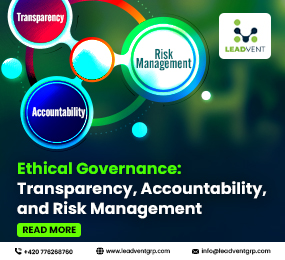ESG and Climate in Africa: A Path Toward Sustainable Growth
Africa is standing at a climate crossroads. While the continent contributes the least to global greenhouse gas emissions, it is disproportionately affected by the impacts—extreme weather, food insecurity, water scarcity, and fragile infrastructure. But amid these challenges lies an opportunity: to use ESG (Environmental, Social, and Governance) principles as a framework for sustainable growth that puts people, planet, and prosperity on equal footing.
Over the past decade, ESG has evolved from a corporate checklist into a critical lens for investment and development—especially in regions vulnerable to climate shocks. For Africa, ESG isn’t just a trend; it’s a tool for resilience and long-term stability.
Why ESG Matters in the African Context
Africa’s vast natural resources, growing population, and expanding economies position it as a vital player in the global sustainability conversation. However, climate risk is already reshaping the landscape—literally and economically. Droughts, floods, and rising temperatures are placing strain on agriculture, water supplies, and infrastructure.
In this context, ESG frameworks help align investment and development projects with broader sustainability goals. Environmental considerations promote responsible land use, water management, and renewable energy. Social factors push for community engagement, fair labor practices, and inclusion. Governance emphasizes transparency, accountability, and ethical leadership—all essential for building trust and attracting long-term capital.
Investment with Impact
Across the continent, ESG-driven investments are beginning to take root. From solar mini-grids in rural Kenya to green bonds in Nigeria, the focus is shifting toward projects that create both financial returns and measurable social or environmental benefits.
Multilateral banks, private equity firms, and development finance institutions are increasingly applying ESG metrics when evaluating African portfolios. In countries like South Africa and Morocco, regulatory frameworks are emerging to support ESG reporting, green finance, and corporate responsibility.
But this transition isn’t just about compliance—it’s about value creation. Projects that prioritize environmental sustainability and social equity tend to be more resilient in the face of political or economic turbulence.
Barriers and the Way Forward
Despite growing momentum, Africa faces challenges in embedding ESG at scale. Limited data, inconsistent regulations, and lack of technical capacity can make ESG implementation difficult—especially for small and medium enterprises or in informal sectors.
However, regional collaboration, education, and support from global institutions can bridge these gaps. ESG in Africa needs to be context-specific—not a carbon copy of Western frameworks. By grounding ESG in local realities, countries can create strategies that are both effective and inclusive.
Key Takeaway:
Africa’s path to climate resilience and sustainable development lies in embracing ESG as a practical, locally grounded tool. With the right support, it can drive investment that strengthens communities, safeguards the environment, and builds a more just and climate-ready future.
Learn more on our website: https://www.leadventgrp.com/events/esg-and-climate-africa-summit/details
For more information and group participation, contact us: [email protected] .
Leadvent Group - Industry Leading Events for Business Leaders!
www.leadventgrp.com | [email protected]
















